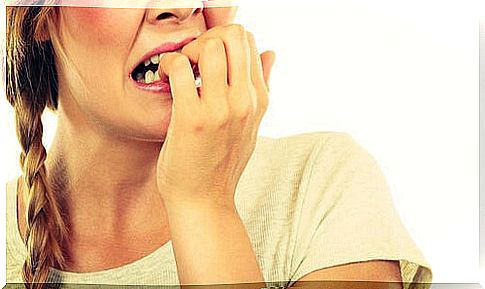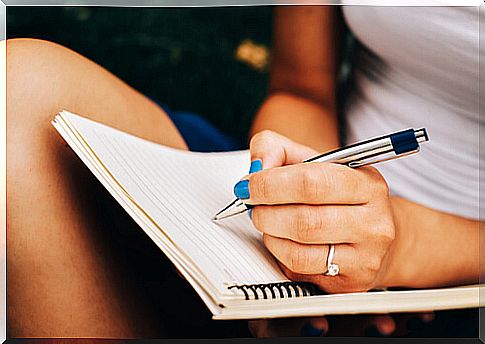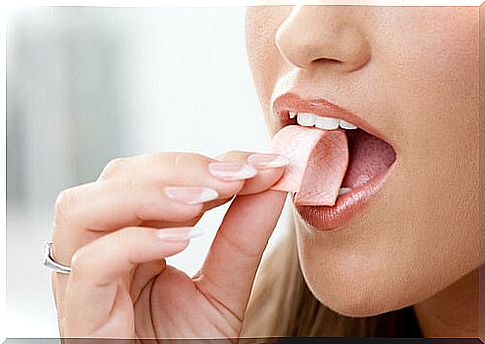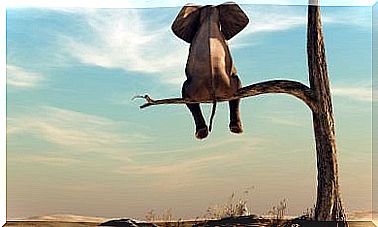Onychophagia: 7 Tips To Stop Biting Nails

An exam, a family reunion, an appointment, a wait at the doctor…. All of these situations have something in common. In all of them anxiety, worry or shyness can invade us. These emotions or thoughts can be expressed with words, with the body or through gestures. Hands are an important communication element. With them we hug, caress and express. With them we also express our restlessness, boredom, desire to end a meeting or even rudeness.
Within the expression through the hands, nails or hangnails can be a reflection of our emotions or thoughts. For many people it is a tool to channel sensations, even if it is unconsciously. This is known as onychophagia. The word “is derived from two Greek words: onyx (“ nail ”) and phagein (“ eat ”) (Cano, Peniche and Arellano, 2001)”.
Onychophagia is generally considered a compulsion, that is, it is performed to manage feelings of anxiety, intrusive thoughts, and feelings of restlessness. It has important consequences for our oral health, social image and self-esteem in the most serious cases. Despite the difficulty of changing this habit, all is not lost. If it is not a clinical case, it just takes a little will, awareness and motivation.
Nail biting, an unsolved problem
The truth is that the tendency to bite nails or onychophagia remains a mystery even to the world of psychology, medicine or psychiatry. In 2015, an article was published in the Journal of Behavior Therapy and Experimental Psychiatry that argued that onychophagia was not a sign of nerves or anxiety as most of us think, but rather a sign of perfectionism. This activity could help these people manage their dissatisfaction or irritation.

We also found studies that show that a third of those who suffer from onychophagia are in a family environment where another member of the group suffers from it. In this case they speak of the imitation of children in families where a father, mother or brother do it. Other studies simplify the equation and link onychophagia with pleasure. The action of biting the nails would generate pleasant sensations.
Does it start with the will?
It seems like a cliché. The will…. It is said that it is a matter of the will to stop doing something or to launch into a goal. “If you don’t, it’s because you don’t really want to.” The truth is that the topic is loaded with as many reasons as it is lacking. It is true that it gives us a simplistic view of reality, but it is no less true that will and motivation (whatever it may be) are the engine and the force to start. Without them we would not get to place ourselves even in the starting box. But be careful because … wanting, many times is not power.
The will does not move mountains, but it is very important to begin with. It does not matter that we fail, that we make mistakes or that we spend a whole summer without modern nails and when we return to work we return to the habit. All endings are new beginnings. If one formula doesn’t work, try a different one. If you don’t want to change the what, change the how.
What did you do wrong last time? Where was the error? Remember the feeling of achieving it and start over. The moment you make the decision, write a positive message for yourself, something that has meaning and put it in a visible place. It will help you when temptations appear.
Be conscious
Nothing is more important to correct mistakes than to become aware of them. At work, in relationships, in communication and in any activity that we want to improve. Fighting onychophagia is a long-distance race. A good way to start is by self-recording by noting the times when you bite your nails. Where are you? What are you doing?
Registering it is a way of becoming aware of those activities or people that surround that behavior. The hours, the places … driving, at traffic lights, at the end of the day … every moment is important because it will give you an idea of the stimuli that you have most associated with the action of biting your nails.

This prepares the brain and trains it to detect moments of danger. First record the moments of biting your nails. When you master that point, write down how many times you put your hands to your mouth (without biting). In the end the exercise will only consist of realizing when you think about it. They are ways of stopping automatisms.
One small step
Small steps lead to big achievements. The great enemy of motivation is impossible goals. Maybe you have an event or a job interview and for this you decide not to bite your nails. It is paradoxical because at the moment of greatest anxiety you put your weapon aside to fight it. Surely at some point you end up forgetting the goal, you bite your nails and a feeling of failure and inability appears.
This is too much pressure to break a habit like onychophagia that may have been in us for years. Surely there are people who have left it the first time. There is always the person who talks about his last cigarette. But … what about those that don’t work like that?
Trying not to be too hard on yourself is a good ally when temptation has bent the will. Try with one or two fingers or set a goal for the weekend or vacation period. The sum of simple and easier objectives will make us achieve great goals. Every step counts, and just as we must record the behavior we want to change, it is worth recording the achievements we are making.
Prepare for temptation
Avoiding temptation is the next step after knowing the situations, people or hours of the day where onychophagia appears. Yet we cannot constantly escape or avoid. One of the strategies is to turn to our mind to deal with it. Anticipating the situation and how to get out of it without biting your nails is to visualize a moment of success where you can come out stronger. Look for alternative thoughts to turn to and positive messages to lean on. Another resource is training the body in breathing and relaxation to combat nerve-provoking situations.
Just as the body and mind can be trained, we can also learn to “hold” behavior. A series of practical exercises is to bring the hand to the mouth and keep it at 5 cm. holding the sensations or biting a finger and holding for 20 seconds. If it is done in a conscious way and as training we will gradually get used to it and it will be easier to identify the sensations that precede the act we want to avoid, biting our nails.
Look for alternatives (for the mouth and for the hands)
Everyone who has fought a bad habit (more or less harmless) knows how difficult it is. Many times a certain misunderstanding on the part of the people around those who try to quit this habit, and may even receive comments that allude to their mental weakness.
Sometimes visualization, will or mentalization is not enough. So finding alternatives can be a solution. Let’s not forget that each person will have both options. The important thing is to remember that we can act in two foci: the mouth and the hands.

Faced with the need to have something in the mouth to appease the nerves, restlessness or boredom, we can resort to chewing gum, ginger or sucking liquorice, candy, etc. Having something in the mouth removes that need to occupy that space. Another point where we can act is the fingers.
Washing your hands, wearing gloves, enamels, putting on a plaster or even invisible foils will prevent the action. At the very least, it can serve as a direct reminder of your goal. On the other hand, you can carry other types of distractions to touch, such as a keychain, a small ball, a pen, etc. Something to play with and keep your hands entertained.
If you search, you will find
It’s a temptation…. There is a time when the nails begin to grow and it is logical that the sensation is strange. Involuntarily we touch our fingers, we look at them or we caress the edges of our nails. Another custom is to run the fingertips or try to brush the nails with clothing. Avoiding these gestures will be essential. The moment we have trained the attention to become aware that we are doing it, it will be easy for us to avoid falling into temptation.
When there is an irregularity or scratch on the nail, a simple trick is to carry a small file on top. With this we will avoid resorting to the teeth to overcome what we do not tolerate, the spikes in the nails. If at any given time we find ourselves doing this type of activity, “pick up” our hands. That is, make fists if you are standing, find someone and start a conversation or even put your hands in your pockets or put them under your thighs if you are sitting.
If you are doing well, acknowledge it
At this point, it should be noted how hard it is for us to recognize the merits of ourselves. Many times, due to the education received or for fear of giving a different image to the one we want to project, we stop valuing the small achievements that we achieve. This confrontation impairs the construction of the self-image. If we have reached a goal, we must reward ourselves: for this we will not be less humble or believe ourselves more than anyone else.
Although for the people around us they are minor actions, if we have set a goal and we have achieved it, it will be positive to enhance the self-satisfaction that emanates from achievement. Come up with small rewards if we have managed, for example, to spend a week without biting our nails. Even so, seeking complicity with the environment can help us in the process. If they understand and empathize, they will be a fundamental support.
On the other hand, if the problem is considered health to the point of bleeding, finger deformation or is associated with an obsessive-compulsive, depressive or anxiety disorder, it will be essential to attend a medical team for advice, control and monitoring of the habit and all the consequences that it entails.









